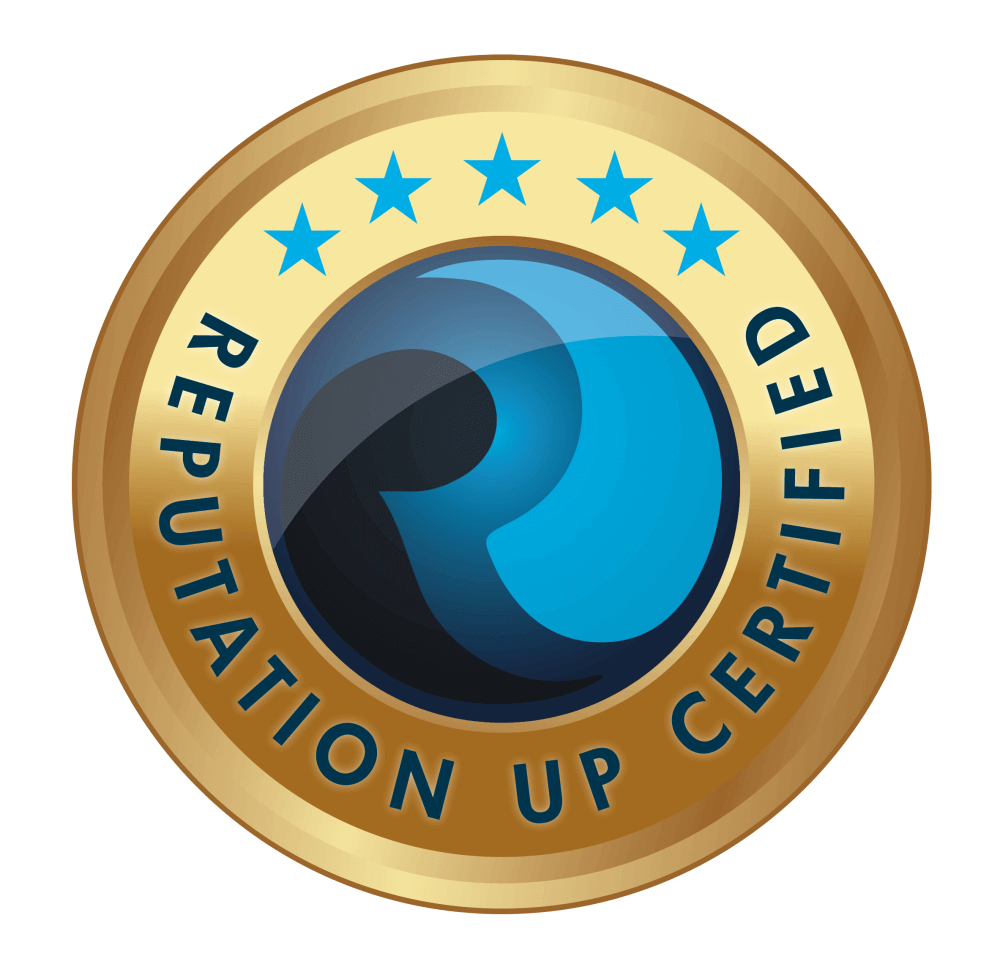Learn about the benefits of content marketing and discover the latest trends, key metrics and effective strategies to boost your online success.
Index
- What is content marketing?
- Benefits of content marketing
- Effective content marketing strategies
- Useful content marketing tools
- The latest trends in content marketing
- Key metrics for measuring content marketing success
- Effective content types for content marketing
- Steps to developing a successful content marketing strategy
- Common content marketing mistakes and how to avoid them
- Conclusions
- FAQ
Do you want to disappear from the web?
Erase all your traces on the internet and exercise your digital right to be forgotten
What is content marketing?
Content marketing is a marketing strategy that focuses on creating and distributing relevant and valuable content to attract, retain and convert a specific audience.
It consists of providing useful, entertaining or educational information with the goal of generating interest in a company’s products or services as professional reputation management tools.
According to SEMrush, 84% of companies have a content marketing strategy.

Importance of content marketing
Content marketing is essential in the digital age for several reasons:
- It allows businesses to differentiate themselves from the competition by providing quality content that meets the needs of their audience;
- Relevant and valuable content helps create an emotional connection with consumers and builds trust in the brand;
- Content marketing is an effective way to increase online visibility, generate leads and conversions, improve customer retention, and establish authority in the marketplace.
It is important to know how to apply content marketing and tailor it to the specific area of the brand, i.e. which strategy is best suited for your company and its audience.
Benefits of content marketing
Content marketing offers a wide range of benefits for companies and brands that use it effectively.
Increased online visibility
Content marketing helps improve a company’s online visibility by creating search-engine-optimized content and promoting it through multiple channels.
This helps increase search visibility and drive organic traffic to the company’s website.
Lead Generation and Conversions
By providing valuable online content, content marketing helps capture the attention of users interested in a company’s products or services.
This can lead to qualified lead generation for colleges and ultimately conversions. Relevant and compelling content can influence consumers’ purchasing decisions.
Improved customer interaction
Content marketing provides an opportunity to interact and engage with customers in a meaningful way.
Through blogs, social media, comments, and other forms of interaction, companies can answer customer questions, provide additional information, and build strong relationships based on trust and transparency.
Establish authority in the marketplace
By creating and sharing quality content, a company can establish itself as a leader and benchmark in its industry.
Well-researched, informative, and valuable content helps build credibility and trust, which can lead consumers to view the company as an authority in its field and prefer its products or services.
All the benefits of content marketing are transferred in parallel to the brand’s online reputation.
Need help managing and improving your online reputation?
60% of users say they don’t trust people or businesses who receive negative comments or reviews
Effective content marketing strategies
To achieve successful content marketing results, it is critical to implement effective strategies that maximize the impact of content.
Create relevant and quality content
Creating relevant and quality content is essential to the success of content marketing.
It is important to understand the needs and interests of the target audience and provide valuable information that solves their problems or meets their needs.
Content must be original, well-structured, easy to read, and supported by reliable data and references.
Keyword usage and SEO optimization
Search engine optimization (SEO) is essential for content to be found by the target audience.
This includes researching and selecting relevant keywords, properly incorporating these keywords into content, and optimizing other technical aspects of the website such as meta tags and URL structure.
The BrightEdge report states that SEO generates 1000% more traffic than organic social.

Content promotion and distribution
Promoting and distributing content is just as important as creating it.
Companies need to use a variety of channels, such as social networking, email marketing, influencer collaboration, and online community participation, to distribute their content and reach a broader audience.
In addition, paid advertising techniques such as social media ads or pay-per-click (PPC) campaigns can be used to increase content visibility.
According to Statista, social networks (73%), email marketing (53%), and social media ads (51%) are the top channels used to promote content marketing.

Monitor and analyze results
Tracking and analyzing the results of content marketing is critical to evaluating the effectiveness of the strategy and making adjustments when necessary.
Companies should use tools to monitor traffic, conversions, and other key indicators such as social media monitoring tool.
This will help you determine what type of content works best and how to continually improve your content marketing tactics.
ReputationUP, a leading digital reputation management company, can help you determine the best content marketing strategy for your brand.
Do you want to spy on your competitors and their strategies?
Access the RepUP Monitoring Tool platform and find out how to beat the competition.
Useful content marketing tools
Content marketing benefits greatly from the use of tools that help create, promote, and analyze content.
The right tools can help companies measure their corporate reputation through content marketing.
The following sections explain some useful content marketing tools.
Google Analytics
Google Analytics is a free web analytics tool that provides detailed information about website traffic, user behavior, conversions, and other key metrics.
It allows businesses to track and analyze the performance of their content and make data-driven decisions.
Buzzsumo
Buzzsumo is a tool that allows businesses to find the most popular and shared content on social media for any given topic or keyword.
This helps identify trends, understand what type of content is resonating with audiences, and generate ideas for creating relevant content.
Buffer
Buffer is a social media management tool that allows you to efficiently schedule and post content to multiple social platforms.
It enables companies to maintain an active online presence on social networks, share their content, and increase reach and interaction with their audience.
The latest trends in content marketing
Content marketing is constantly evolving and adapting to current trends in the digital marketplace.
An example of this is WhatsApp marketing, a novelty in recent years for promoting products and services.
Here are some of the most prominent trends in content marketing.
Video marketing
Video marketing has become an increasingly popular and effective form of content marketing.
Videos are engaging, easy to consume, and have the potential to deliver messages effectively.
Companies can use video to tell stories, showcase products or services, provide tutorials or interviews, and create an emotional connection with the audience.
Video producer Wyzowl states in its 2023 report about Video Marketing that by 2023, 91% of companies will use video as a digital marketing tool.

User generated content
User-generated content involves the participation and contribution of the audience in the creation of content. This can include user-generated reviews, photos, videos, and other forms of content.
This helps build an engaged and trusted community while providing businesses with authentic and valuable content.
Personalization and segmentation
Personalization and segmentation are major trends in digital marketing.
Companies are taking a more personalized approach to delivering content that is tailored to their audience’s preferences.
This involves collecting and analyzing data to deliver relevant content tailored to each user.
Voice search optimization
With the growth of voice assistants and voice-enabled devices, voice search optimization has become essential.
Companies need to tailor their content to respond to voice search queries and use natural, conversational language in their content strategies.
Interactive content
Interactive content, such as quizzes, surveys, and interactive infographics, is a growing trend in content marketing.
This type of content actively engages users and provides a more interactive and entertaining experience.
Interactive content increases audience engagement and retention.
According to Mediafly, this type of content generates 52.6% more engagement than static content:
The new data confirms B2B buyers’ preference for interactive content and presentations in an increasingly digital retail environment.

Key metrics for measuring content marketing success
Measuring the success of content marketing is essential to evaluating the performance of the strategy and making continuous improvements.
Knowing how the brand is evolving on the web is essential in a digital marketing strategy.
ReputationUP has the most revolutionary software to know what is being said about a brand on the web, in real time.
The RepUP monitoring tool combines artificial intelligence and big data to analyze a corporate or personal brand.
Do you want to spy on your competitors and their strategies?
Access the RepUP Monitoring Tool platform and find out how to beat the competition.
Next, the specific metrics to measure the success of content marketing are analyzed.
Organic traffic
Organic traffic is an important metric for evaluating the effectiveness of content marketing.
It measures the number of visitors who come to a company’s website from unpaid search results.
An increase in organic traffic indicates that the content is being found and attracting the target audience.
Time on site
Time on site is a metric that indicates the level of interest and engagement visitors have with content.
The more time users spend on the site, the more likely they are to consume and enjoy the content.
Longer time on site may indicate that the content is relevant and engaging.
Conversion rate
Conversion rate is a key metric that indicates the effectiveness of content marketing in driving desired actions, such as purchases, subscriptions, or downloads.
It measures the percentage of visitors who complete a specific action out of the total number of visitors.
A high conversion rate indicates that the content and calls to action are effective.
Social engagement
Social engagement refers to the interaction and participation of followers with the content a company shares on social platforms.
It includes actions such as likes, comments, shares, and mentions.
Higher engagement indicates that the content is relevant and generates interest and engagement from the audience.
Return on investment
Return on investment (ROI) is a critical metric for evaluating the profitability of content marketing strategies.
It measures the benefits received in relation to the costs invested in creating, promoting, and distributing content.
A positive ROI indicates that content marketing is generating a positive economic return for the organization.
According to HubSpot, short-form video, the hottest trend among marketers in 2023, has the highest ROI.

Effective content types for content marketing
There are several effective types of content that can be used in content marketing to capture audience attention and drive engagement.
The following section explains the most effective for a brand.
Articles and blogs
Articles and blogs are popular forms of content for content marketing.
They allow companies to share detailed, educational, or informative information about their industry, products, or services.
Well-written and optimized articles and blogs can drive organic traffic, establish authority, and generate audience interest.
The Content Marketing Institute states in its B2C Content Marketing report that the short article is the top content type used by B2C marketers, second only to video.

Infographics
Infographics are a visually appealing way to present relevant and complex information in a clear and concise manner.
They are easy to share online and can help capture audience attention and communicate messages effectively.
Infographics are particularly useful for presenting data, statistics, and processes.
Videos and webinars
The video format is highly effective in content marketing due to its ability to convey messages visually and aurally.
Videos and webinars can be used to introduce products, provide tutorials, interviews, customer testimonials, or tell brand stories.
Videos help create an emotional and engaging connection with your audience.
Case studies and testimonials
Case studies and testimonials are types of content that demonstrate positive customer outcomes and experiences.
They provide social proof and help build brand trust by showing how products or services have positively impacted customers’ lives or businesses.
Guides and tutorials
Guides and tutorials are forms of educational content that provide step-by-step instructions on how to perform a task or achieve a specific goal.
This type of content is useful to the audience and helps establish the company’s authority by providing insight and practical solutions.
Contact ReputationUP, a leading online reputation management company, so their expert content marketing team can help you develop an effective content strategy that meets your goals.
Need help managing and improving your online reputation?
60% of users say they don’t trust people or businesses who receive negative comments or reviews
Steps to developing a successful content marketing strategy
Developing a successful content marketing strategy requires a planned and structured approach.
Here are the key steps to developing an effective content marketing strategy:
- Define clear goals:
These goals may include increasing brand awareness, generating leads, increasing conversions, or establishing yourself as an industry authority. Objectives must be measurable and realistic in order to evaluate the success of the strategy.
- Know your target audience:
This involves researching and understanding their needs, wants, problems, and preferences. Market research and the creation of buyer personas can be useful in providing detailed information about the audience and tailoring content to their specific characteristics.
- Keyword research:
Keyword research is critical to optimizing content and increasing search engine visibility.
- Create a content plan:
A well-structured content plan and publishing calendar will help ensure a consistent and organized output of content. This includes defining the topics, formats, and types of content to be created, as well as publishing and distribution dates. A content plan also maintains the consistency and relevance of the strategy.
- Measure and adjust:
Ongoing monitoring and analysis of results are essential to evaluating the effectiveness of the content marketing strategy. Key metrics such as traffic, conversions, engagement, and ROI should be monitored and the strategy adjusted based on the data collected. This allows you to optimize content and continually improve results.
Common content marketing mistakes and how to avoid them
When implementing a content marketing strategy, it is important to avoid certain common mistakes that can negatively impact results.
Here are some common content marketing mistakes and how to avoid them.
Not having a clear content strategy
One of the most common content marketing mistakes is not having a clear content strategy.
It is important to have a planned and consistent approach to content creation and distribution.
A well-defined strategy helps set goals, identify the target audience, select the right channels, and ensure content consistency and relevance.
Not optimizing content for SEO
Search engine optimization is essential for improving content visibility and reach.
Not optimizing content for SEO can result in lower search engine rankings and less visibility to your target audience.
It’s important to use relevant keywords, optimize meta tags and site structure, and ensure that content is easily crawled and indexed by search engines.
Neglecting content distribution and promotion
Creating quality content is not enough if it is not properly promoted and distributed.
Neglecting to distribute and promote content can limit its reach and visibility.
It is important to use different distribution channels, such as social networks, email, and collaborations with other websites.
Failure to properly monitor and analyze results
Lack of monitoring and analysis of results can make it difficult to evaluate the effectiveness of content marketing and make informed decisions.
It’s important to set and monitor key metrics, such as traffic, conversions and engagement, and use the data collected to adjust and improve your content strategy.
Conclusions
Throughout this guide, you have learned about the benefits, metrics, and strategies of content marketing to drive online success.
The following conclusions can be drawn from this article:
- Content marketing has many benefits for a business: increased online visibility, lead generation and conversions, improved customer retention, and establishing authority in the marketplace;
- Content marketing strategies include creating relevant content, using keywords and SEO optimization, promoting and distributing content, and analyzing results;
- Google Analytics or SEMrush are tools used to optimize content marketing strategies;
- The main trends are video marketing, user participation, voice search optimization or interactive content;
- Analyzing the metrics is the key to completing the content marketing process;
- The most effective content is articles, blogs, infographics, videos, webinars, case studies and how-to guides.
ReputationUP, a leading online reputation company, has an expert content strategy and marketing team.
Their specialists can help you focus on your brand’s goals.
Need help managing and improving your online reputation?
60% of users say they don’t trust people or businesses who receive negative comments or reviews
FAQ
It is essential for establishing a strong online presence and building relationships with your audience. It allows you to educate, inform and entertain potential customers.
Blog articles, infographics, videos, podcasts, ebooks, case studies, guides, webinars, and social media content. The type of content you choose will depend on your audience and the goals of your strategy.
Through metrics such as website traffic, conversion rate, time spent on page, social media engagement, signups, and increased brand awareness.
Unlike traditional advertising, which is intrusive and attempts to sell directly, content marketing focuses on providing value and solving problems for the audience.
This involves researching potential customers and analyzing their needs, interests, and preferences. Surveys and observation can be helpful in gaining valuable information.





